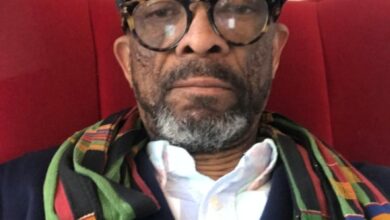
The Sudanese impasse is multi-faceted
By/ Rishan oshi
The seriousness of the matter is that the impasse is not only military, but it is multiple and has different names. It is international, political, military, and internal as well, related to the composition of Sudanese society, and most importantly, it is a moral impasse.
The April 15 war is nothing but a major shift between two close moments in time that reveals the abundant possibilities for political fluctuations, and that things actually in the stagnant pool called politics are not a choice between two colors, black and white, but rather, in most cases, are shades of colors, including the gray area.
Politically…and because the rifle does not know the colors of grey, the National Army fought with its back exposed, without a political incubator, no political cover, and no mobilizing speech. All of this is a product of the positions of the political forces that are based on pragmatism, and they are of course inconsistent with the army’s position announced by the President.” Al-Burhan, in a famous speech during the “framework” crisis, said: “The army stands at the same distance from all political forces.”
Everyone seeks to ride the back of the armed forces to power. When they realized that the army and its leadership would not ally with a political party but only with the nation, they disbanded, and recent memory preserves the repeated trips between Cairo and Port Sudan, and the enthusiasm of the conferences held during the past months.
Militarily… there are still continuous obstacles that are working to deprive the Sudanese army of assuming its role in restoring the stability of the country. After the army was subjected to the largest operation of genocide and destruction of its structure, camps, vehicles, bases and aircraft during more than a year of war, it now lives under the yoke of psychological warfare, which is trying He created a gap between his leadership and the people, saying that the leadership was defeated militarily, and that the army was fleeing from the field confrontation.
The truth is that the Sudanese army has never fought before inside cities and among citizens. In addition to the daily material exhaustion under an international blockade and open borders with conspiring neighbors, they paid the price for fanning the fire in Sudan in public.
Internationally, an attempt was made to overthrow the state through the West’s use of its destructive political power under the pretext of protecting civilians, and turning a blind eye to an immoral war, in which all international prohibitions were used, which made Sudan a common land for fugitives, bandits and terrorists, who plunder, rape and kill civilians. The goal of this was to Overthrowing the state and spreading chaos.
The crisis, with all its internal and external complexities, and the clash between politicians, who are responsible for providing political cover and mobilizing discourse to support the national army as it fights an existential war, the results of which may be disastrous, including the fact that they will not find a country over whose rule they can fight.
In addition, some politicians conspired with their handlers from abroad to thwart the army’s efforts to protect the state from falling into the hands of foreign mercenary militias, and even attempted to kill him by contributing to psychological warfare campaigns that describe soldiers and officers as fleeing the battlefield, so that the army’s role would decline with the intention of dismantling it, which is something that Some major countries intervening in Sudanese affairs are seeking it.
Internally, the complexities of Sudanese society were another, but secondary, reason for the continuation of the war at this pace, because the people did not find a respectable politician to represent them as an inspiring leader for the masses. Even the men of the civil administration resorted to the conspiracy and caught the price.
The most important step that must precede any political dialogue on power-sharing is to seek to evacuate Sudan of militias, mercenaries and foreign forces, otherwise all political settlement efforts will become plowed into the sea.
Neighboring countries that sponsor political settlement projects must know that mercenaries are a danger to their neighbors as well, and there are those who believe that even their going out with their weapons is considered another regional danger, especially in light of the presence of conflicts in the region.
The file of militias and mercenaries is not a purely Sudanese file at all, and whoever thinks that their exit is dependent on a pure Sudanese will is wrong, as the presence of mercenaries is the result of external interference and a proxy war in Sudan, and therefore any demand to remove these groups must pass through the gate of the major countries interfering in Sudanese affairs. Whoever brought the demon is the one who will distract him.




